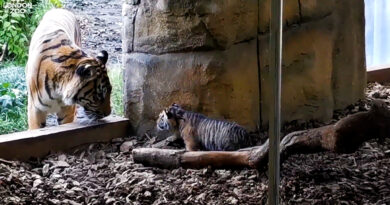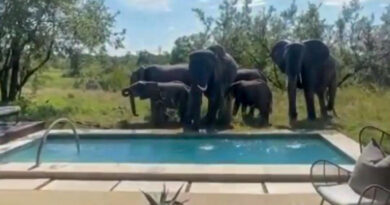Incredible Moment Octopus Stretches Out Tentacle To Give Sperm To Camouflaged Female On Australias Great Barrier Reef
This footage shows the rarely seen moment an octopus stretches out one of its long tentacles to deliver sperm to a camouflaged female hiding on the sea bottom.
The fascinating moment was captured on camera by marine biologist and Master reef guide Jacinta Shackleton, 26, a videographer who is currently working on the Great Barrier Reef off the eastern coast of Australia in the Pacific Ocean.
The footage shows a large octopus on the reef extending one of its long tentacles in order to give sperm to a female that can be seen camouflaging herself by changing her colour to match that of the coral.
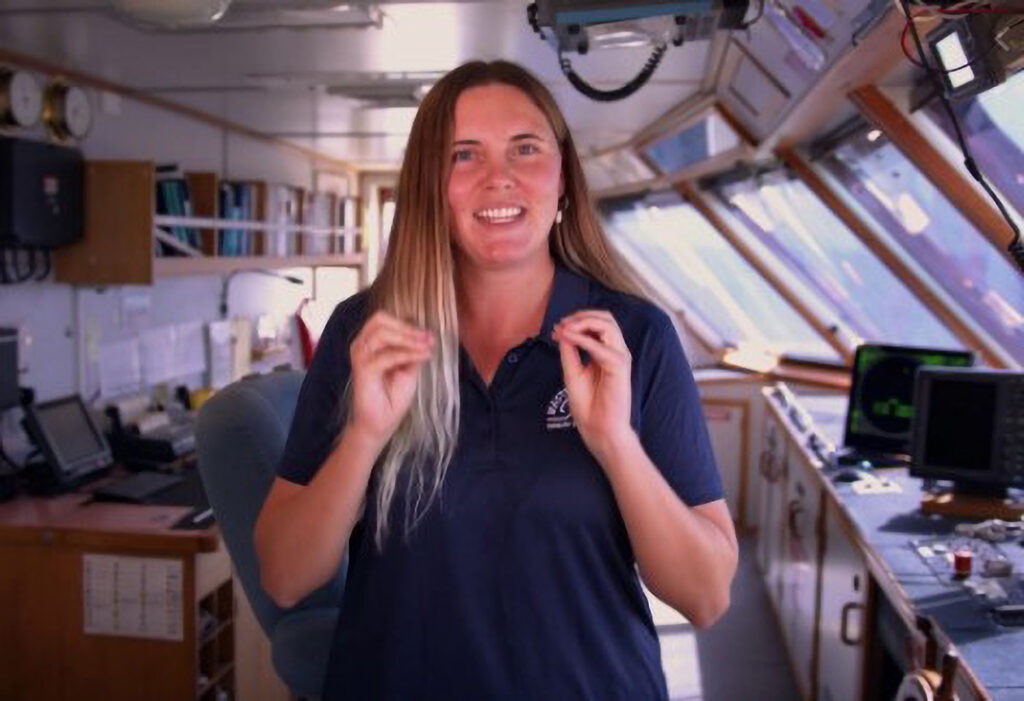
Octopuses reproduce by the male inserting a special arm called a hectocotylus into the female’s mantle cavity to transfer spermatophore, which are packets of sperm, after a period of courtship involving changing colours.
Once the female has accepted the male as a mate, the male typically sits beside her or climbs on top of her. But comparatively little is known about octopus reproduction, because it has only been studied in a few of the animal’s subspecies.
Speaking to Newsflash in an exclusive interview, Shackleton said that she filmed these images on the southern Great Barrier Reef on 28th February.
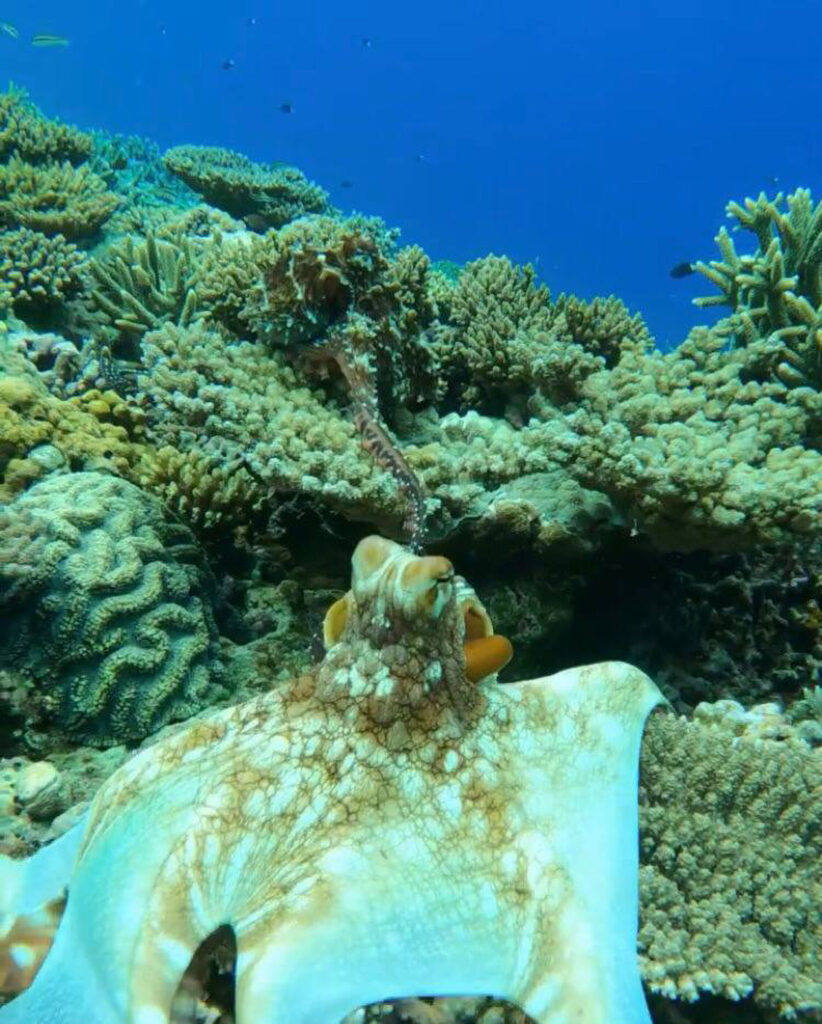
She said that the octopus was a day octopus (Octopus cyanea), also known as a big blue octopus
Speaking about the rare sight, she said: “I was freediving and I just spotted it.”
She added that while “this reef is in fantastic condition, as are many locations on the GBR”, it is “undoubtedly being impacted by climate change”.
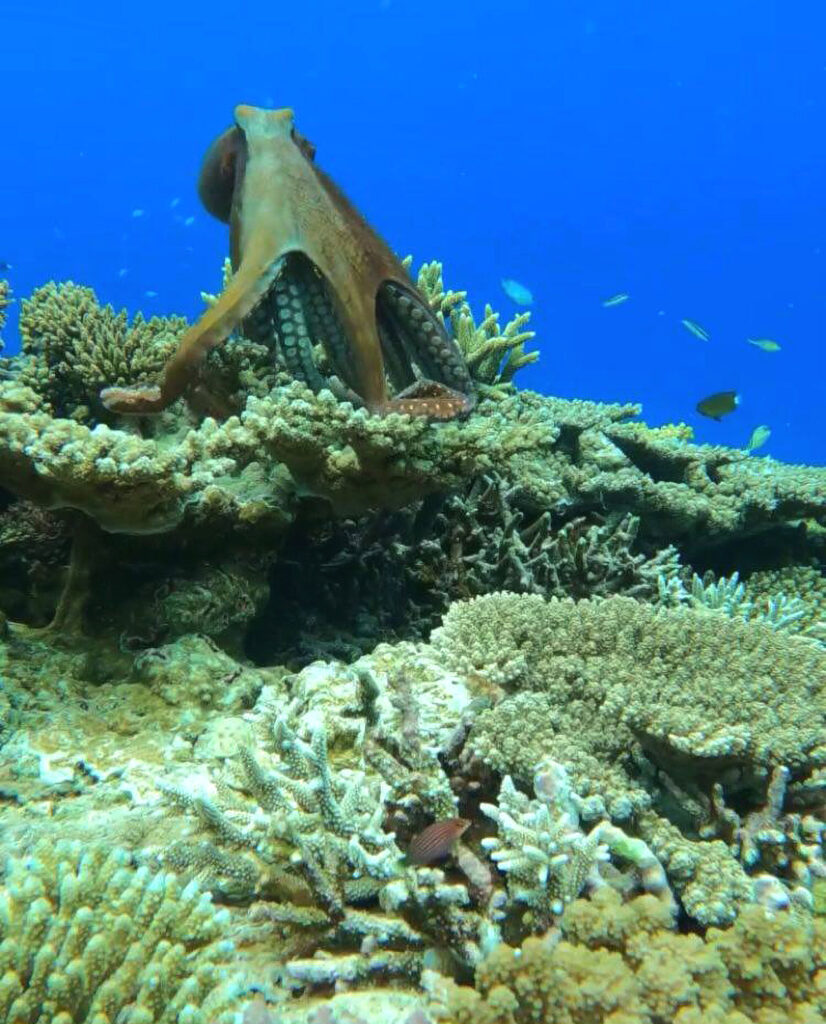
The big blue octopus can be found in shallow waters and on reefs in both the Indian and Pacific oceans. It is mainly active at dawn and at dusk, and is skilled at hiding and camouflaging itself, making spotting it a rare sight.
Shackleton added that one of the characteristics that she finds the most interesting about octopuses – or octopi – are their “intelligence” and their “nine brains”.
She said that the fascinating animal is one of the ones that she is the most interested in, along with sharks and manta rays.


